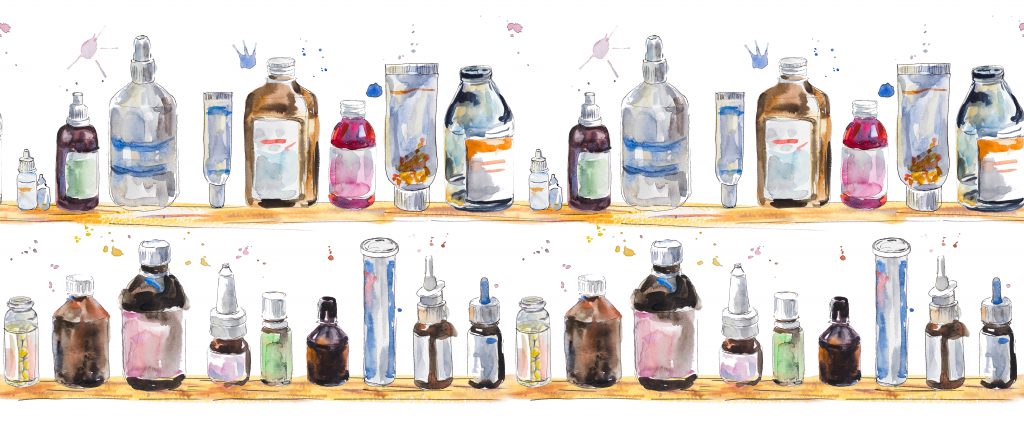Simple analogies can sometimes be helpful when emphasizing a point with a patient. In what ways are antidepressants like antibiotics? Each of these similarities makes an important point regarding treatment with antidepressants.
1. Antidepressants are not “happy pills”
Antibiotics don’t work for all infections. When you have a sore throat, you don’t automatically take an antibiotic because most cases of sore throat are due viral infection. Similarly, not everyone who is sad or depressed should get an antidepressant. Antidepressants are effective only for certain types of depression.
2. Antidepressants take some time to work
When you take an antibiotic, you often do not feel better right away. It usually takes a little time. Similarly, when you take an antidepressant, it takes some time for it to work. Typically this is 4 to 8 weeks for a clear effect though an improvement may be felt even earlier.
3. It is not irrational to use symptomatic treatment along with an antidepressant
When a person is treated with an antibiotic, e.g., for a strep throat, it is common to take other medications for treatment of symptoms, e.g., pain, fever, etc. Similarly, with an antidepressant, it often makes sense to also take a separate medication for insomnia or for anxiety. In a few cases, other symptomatic treatments like methylphenidate or modafinil are also used.
4. Do NOT stop taking the antidepressant just because you feel better
With antibiotics, one should not stop taking them when we feel better; we should finish the “course” of treatment, 7 days, 14 days, etc. Similarly, with antidepressants, it is very important to not stop the antidepressant even when the depression has completely resolved. Persons who took an antidepressant for an episode of major depressive disorder and benefitted must continue the antidepressants at the same dose for at least 4 to 12 months after the depression is 100% improved (“continuation treatment”). If you stop an antibiotic before the course of treatment is over, the infection may come back and may be harder to treat the next time. The same is true with antidepressants.
5. Many patients require longer-term prophylactic antidepressant treatment
When a person is at high risk of an infection or has had recurrent infections, longer-term prophylactic antidepressant treatment is sometimes given. In patients with major depressive disorder, longer-term treatment with an antidepressant (“maintenance treatment”) is often indicated, much more often than with antibiotics.
A study done in primary care populations found that about 28% of patients stopped taking antidepressants during the first month of treatment, and 44% had stopped taking them by the third month (Lin et al., 1995). However, the study found that patients who received the following 5 specific educational messages were less likely to stop taking the antidepressant during the first month of treatment:
1. Take the medication daily. (Antidepressants should not be taken only on the days when the patient is feeling worse.)
2. Antidepressants must be taken for 2 to 4 weeks for a noticeable effect
3. Continue to take medicine even if feeling better
4. Do not stop taking the antidepressant without checking with the physician
5. Specific instructions regarding what to do to resolve questions regarding antidepressants

